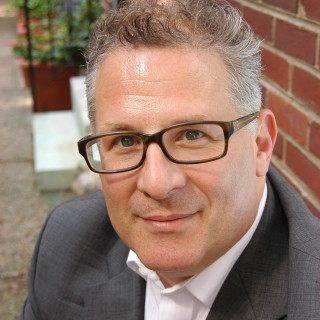As a nation, we have committed to a social imperative for education — an aspirational vision, based on its broad social benefit, for universal literacy and numeracy of our citizens — as manifested in our mandatory K-12 education system. However, with regard to individuals’ health, we do not have a parallel commitment.
Currently in the U.S., there remain opposing sides as to whether we as a society want people to be sick or well. There are individuals and organizations who are willing to use their power and influence to permit avoidable suffering, disease, and disability (and their associated costs) in our communities by denying coverage, creating barriers to access, and undermining the expertise of health care professionals.
Health care economics — financing, cost control, and payment reform — has dominated our national conversation. Yet these discussions are fundamentally flawed because we’re more focused on how we pay for care than how we care. The problem of health care costs can only be solved by determining what we want our investments in health to return. Before designing any framework or platforms for “universal coverage,” perhaps there needs to be a clear understanding of what we expect such coverage to accomplish and how.
Health economics has driven care delivery redesign, especially around the concept of value-based care. However, “value” is currently grounded in a financial calculus of efficiency and managed resource utilization, based on the willingness to take financial risk or measures of evidence-based practice with known health economic value. This focus puts patients and professionals in a subordinate position, because, even in the face of improved access, there remain significant health care disparities among millions of Americans, whose health and well-being are far below quality standards.
Just as there is value to society when everyone knows how to read, write, and do basic math, there is collective value from investments that improve overall quality of health, enhancing the capacity of individuals to contribute emotionally, socially, and economically as active, productive members of family and community. It’s health, not health care, that creates value.
A 2020 McKinsey report makes it clear that the economic benefits of improving health are substantial: Reducing disease burden and preventing or attenuating health-related disruptions to work and family life improves the economic strength of our communities. The economic return is estimated at $2 to $4 for each $1 invested in better health, with expanded participation in the workforce and increased productivity contributing to a projected 8%-10% increase in gross domestic product by 2040.
Perhaps it is time to transcend the idea of health care as a right and consider quality of health as a social imperative on par with our social imperatives for education and law enforcement, based on the societal value of a healthy citizenry.
Achieving a social imperative for health will face several challenges, not the least of which are the limitations of the current organizing principles of our systems of care. There also may be significant resistance to change by commercial and professional networks of self-interest embedded throughout the health care ecosystem.
However, there are two key and largely non-disruptive steps that can be taken immediately.
First, establish a universal framework for care planning. This involves an information architecture that allows everyone’s health to be assessed — and goals set — through the same set of categories: universal, characteristic-based, and condition-indicated preventive measures, condition management, and compassionate care strategies. Goals of care would seek to effect change on the biological, environmental, social, or behavioral determinants of the patients’ current state in order to achieve aspirational goal-states for risk level, burden of illness or disability, functional capacity, or emotional well-being. Aggregating and analyzing data from a universal care planning framework would allow clinicians to determine the requirements, priorities, and value of investments to improve patients’ health.
Second, use the universal framework care plan as a single source of truth to orchestrate the goals of all members of a patient’s health resource community. This collaborative effort would come regardless of institutional affiliation and inclusive of family, friends, and community. As we know from the symphony, orchestration is difficult without a common score that integrates diverse instrumental voices. Equally, truly integrated care is impossible without a similar single source of truth for a patient’s health-related goals and associated plans of care. A universal care plan architecture would integrate and facilitate collaborative, coordinated, and economically efficient care between all members of a patient’s health resource-community. It would also solve the problem of patient data sharing by putting that data in a standardized accessible and usable architecture.
The health care professional community has an opportunity to wrest control of how care is delivered and valued. There are decisions about how we work that are independent of how we are paid; as a professional community, we can choose to deliver care in a disciplined, structured way of our own design. Such a dramatic reconsideration of the organizing principles and interaction design of our systems of care has the potential to equitably and efficiently improve our capacity to help individuals and communities better their health, ultimately achieving a social imperative of health.
Is the U.S. health care system ideally structured to improve the health of society? Share your thoughts in the comment section.
Steven Merahn, MD, is a veteran physician-executive, currently Founder and Chief Executive of Union In Action Inc, a nonprofit organization whose mission is to enhance the capacity of our systems of care to equitably improve the quality of health of individuals and communities using the principles of integration, collaboration, and orchestration. A former public health medical director, health system executive, and Chief Medical Officer, he is the author of “Care Evolution: Essays on Health as a Social Imperative.”
Image by Luciano Lozano / Getty







